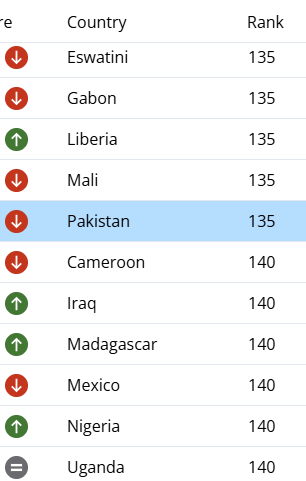Shielded by Power: Impunity of Pakistan’s Elite

By Nasir Aijaz
The AsiaN Representative
ISLAMABAD: Behind the polished speeches and carefully choreographed public appearances of Pakistan’s political elite lies a stark and troubling truth: corruption is deeply entrenched in the country’s corridors of power.
From the prime minister to provincial chief ministers, cabinet members to bureaucratic allies, a disturbing pattern persists—those accused of serious corruption not only evade justice but also continue to rule, influence policy, and enjoy unchecked privilege.
For decades, Pakistan’s political landscape has been riddled with scandals. Some were broadcast with fanfare, others quietly buried under the weight of political influence, fear, and time.
Allegations of massive embezzlement, illegal land allotments, kickbacks from public contracts, secret offshore accounts, and transnational money laundering schemes surface regularly.
Yet the narrative remains unchanged. Names and party affiliations may shift, but the script is familiar: the accused claim political victimization, supporters rally with chants of loyalty, and the judicial process grinds to a near halt. Hearings are delayed indefinitely, and cases fade from public memory—until the next scandal erupts.
What makes this situation especially tragic is the glaring contrast between the suffering of ordinary citizens and the opulence of the ruling elite.
As millions grapple with failing healthcare, underfunded education, and soaring inflation, those in power travel in motorcades of luxury vehicles and live in palatial homes secured by taxpayer-funded protection.
The issue is not merely about stolen wealth—it is about stolen futures. Every rupee siphoned off through corruption means a child left uneducated, a hospital without medicine, a crumbling road, and a farmer pushed into despair.
Even more alarming is the normalization of corruption. Politicians under investigation or indictment continue to run for office—and win. Their cases are discussed openly, yet little is done.
Courts issue summonses, but the accused often return to power, shielded by legal loopholes, political compromise, or the numbing indifference of a public worn down by hopelessness. The culture of impunity is so entrenched that citizens no longer ask, “Is he corrupt?”— Instead, they ask, “How powerful is he?”
Meanwhile, the very institutions tasked with enforcing accountability have themselves lost credibility. Oversight bodies—often ineffective, politicized, or both—have become instruments in broader power struggles.
Agencies like the National Accountability Bureau (NAB), the Federal Investigation Agency (FIA), and even elements within the judiciary are routinely criticized for selective enforcement—pursuing opposition figures with zeal while ignoring wrongdoing by those aligned with the ruling regime. Accountability has become a question of timing and loyalty, not of justice.
What deepens the despair is the fact that this cycle is no longer hidden. It is acknowledged in tea shops, on public transport, in drawing rooms, and across social media. Everyone sees it, but few believe it can be changed. For many, elections are no longer a choice between right and wrong, but between the greater and lesser evil.
The belief that corruption is a normal function of governance, not a deviation from it, has become disturbingly widespread. That resignation—quiet, passive, and tragic—may be the greatest cost of all.
Yet, history teaches that no corrupt system lasts forever. There are moments in the life of every nation when the people, long silenced and oppressed, demand change. That change, though delayed, inevitably comes.
Whether Pakistan will reach such a turning point remains uncertain. But one truth stands unshaken: a nation that enables its corrupt elite while its honest citizens struggle is one inching ever closer to collapse.




